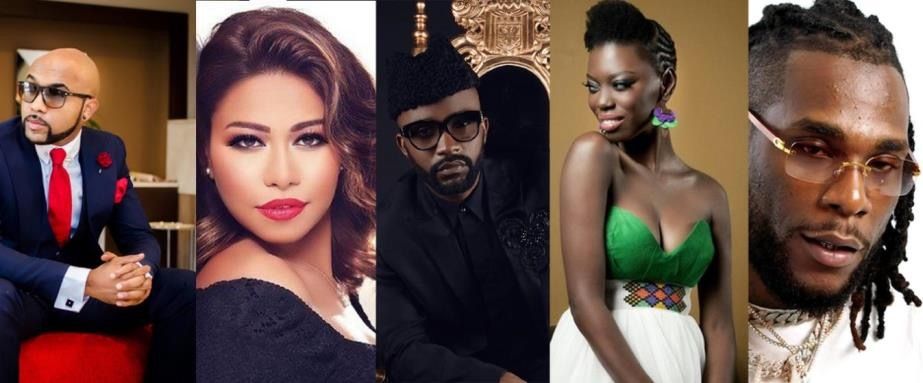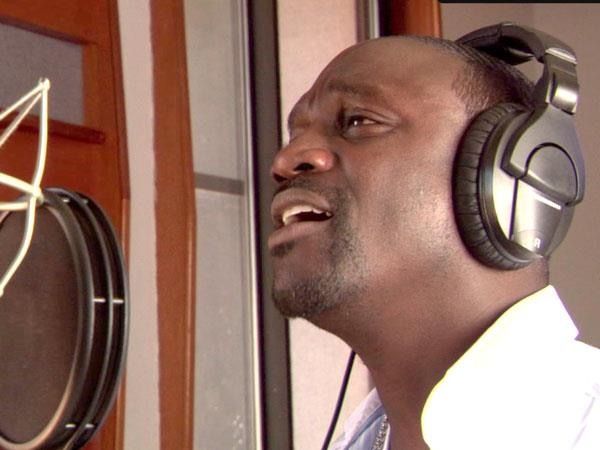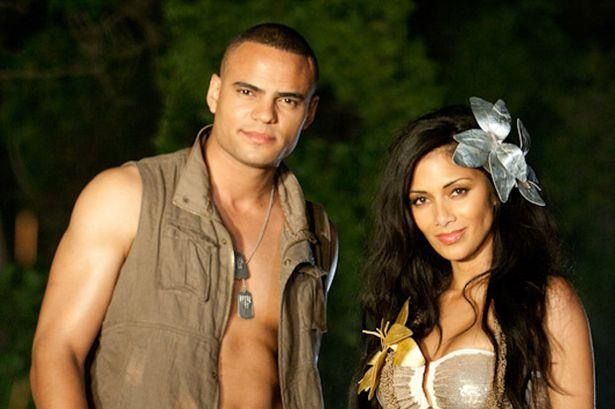 What is the standard of greatness in the African music? And who set it to be so? These questions spring to my mind when I scope the current African music scene- from style to content and delivery.
What is the standard of greatness in the African music? And who set it to be so? These questions spring to my mind when I scope the current African music scene- from style to content and delivery.
From the 1990s and backwards African music (both contemporary and traditional) used to be pure African, in both style and expression, genres like Assiko and Makossa of Cameroon, Benga of Kenya, Bongo Flava of Tanzania, Kwaito of South Africa, Rumba, Ndombolo and Soukous of Congo and so forth. Even mixed genres like Zouk which is an afro-Caribbean mix of Calypso, Reggae and African Guitar style, as well as western genres like Rhythm and Blues, Pop or Hip Hop, all kept an element of African tradition.
In the present time, I’m not so sure anymore; most African musicians want to move to America, Europe or to an African country that has a direct link to their mainstream media. Everyone wants to copy scenarios or drive cars they saw in music videos, and to say something they heard in a song by an American or produced in America. Even in choosing stage names- which is the first glance into creativity- a lot of African musicians want to have a name that sounds like another musician in the United States “Wiz, Ace, Don, …….”. It might have worked for some of them perfectly, which means inter-cultural interaction works, but a few more questions arise here; is it right to connect with other cultures and disconnect from yours for status or fame? Is it okay for someone else to determine the weight of greatness carried by your culture or identity?
Did We Forget About Akon?
I look at some African musicians who have achieved the greatest of success in the music industry, but their achievements are linked to the West. Aliaune Damala Akon Thiam or just known by his stage name Akon, is one such artist. He rose to fame in the mid 2000s after the release of his hit song ‘Locked up’ featuring rapper Styles P from his first album Trouble. The Senegalese American is a mogul, he is an R&B singer, record producer and an entrepreneur, some of his songs like ‘Belly Dancer’, ‘Lonely’, ‘Ghetto’ (one of his most remixed songs), and I Wanna Love you featuring Snoop Dogg, helped him top charts and win awards.
Akon also collaborated with legendary acts like 50 Cent, Eminem, Whitney Houston, Michael Jackson, and Lionel Richie. He also has collaborations with international acts like Tamer Hosney from Egypt, Melissa from Lebanon and participated in the song 'Tomorrow/Bokra', a theme song for a charity project that was done in 2011 by the Globa Gumbo Group. Akon also ventured into the Middle East and featured its biggest artists, produced by ‘RedOne’ and super producer ‘Quincy Jones’ the executive producer of the famous song ‘We are the World’ by Michael Jackson.
There is no doubt that Akon has one of the biggest success stories in America. A migrant child from Africa who got in trouble with the law several times growing up, and while serving a prison sentence, he used the time to interact with his musical talent and that was his starting point to legendary status. Akon signed and developed a lot of artists through his label Konvict Muzic; names like T-Pain, Kardinal Official, Colby O’Dain and the list goes on, he also did the same with African Musicians like 2Face Idibea, Sarkodie, Wizkid and P Square, all of them saw a huge era of success during their time with Konvict. Some are still under contract and it’s working very well for them- not that Akon can set the standard, but rather, he provided bigger and better opportunities in terms of production, marketing and branding.

Grammy-nominated singer-producer Akon joins 24 Arab superstars from 16 nations across the Middle East and North Africa on the charity single “Tomorrow-Bokra” .
In 2014 he started his philanthropic ventures with his project “Akon lighting Africa” which is a project that provides solar generated electricity in fifteen different African countries. The project caught the eyes of every major media house in the world. He did tens of interviews in both radio and television plus other private networks, in 2018 he announced the building of the first Digital city in Africa named after him “Akon City” and the first city with its own digital currency “A Coin” to be located in Dakar, the capital city of his home country of Senegal. With that he announced his relocation to Africa, and after a short period of time he actually moved back to Senegal. Another major challenge for him was reintroducing himself as an African or Senegalese artist instead of African American or Senegalese American, a move which reduced the attention that was given to him by international media houses and news agencies. Now, a lot of people think he has stopped singing while he is actually very active producing new music, but he’s not hitting our airwaves because he gets zero attention from international media now.

Mohombi and Nicole Scherzinger in ‘Coconut Tree’ Music Video
Mohombi – Son of Congo
Another legendary name with the same case is Mohombi Nzasi Moupondo who has a Swedish mother and a Congolese father, Mohombi is a musician, singer, composer and dancer. He rose to fame in 2011 with his song “Bumpy Ride” from the album “MoveMent”. He went on to make more amazing music both solo and as collaborations- like one of his spectacular works is his song “Coconut Tree” with the beautiful and talented Nicole Scherzinger, the former lead singer of the girl group Pussycat Dolls. He also worked with big names like ‘Pitbull’, ‘Nelly’, ‘Shaggy’, ‘Faydee’ from Australia, ‘Arash’ an Iranian-Swidish singer, and ‘Stella Mwangi’ who is a Kenyan rapper based in Norway.
Mohombi also worked with international music producers like ‘Costi’ from Romania and ‘Nadir Khayat’ known as ‘RedOne’ who is a Moroccan-Swedish producer. Throughout his career he topped many charts in the United States and several countries in Europe, and won lots of awards too.
Mohombi has a huge passion for education, he holds a Bachelor’s Degree in music from the Royal College of Music, Stockholm, and speaks seven languages including Greek and Latin. He always caught the eyes of mainstream media with both his personality and talent. He recorded two beautiful songs with musicians from his home country of Congo (which I consider the music capital of the world), namely: ‘Found a way’ featuring Werrason in 2013 and ‘Zonga Mama’ featuring Fally Ipupa in 2017. Recently he announced his relocation to Congo along with a release of a song named ‘Mwana Congo’ which means “Son of Congo” in Lingala followed by several more songs, all in Lingala too. I personally admired the decision and move, I don’t know if it’s because I’m loyal to Africanism or because I’m one of his biggest fans, but either way the international media that always had their eyes on him did not agree. As soon as he embraced his Africanism, his music went down to the bottom of the shelves; his new tracks do not get plays and he isn’t invited for interviews in a lot of the major media houses to talk about them either.
On the other hand, a lot of talents from Africa had to associate their music to the West, in form of collaborations or having their music produced in the United States. Some even move or relocate to the United States or Europe in search of opportunities that would qualify them to be “International Acts”, names like Wiz Kid, Don Jazzy and D’Banj. I personally don’t have a problem with the relocation or exploration of options, but this only shows that Africa does not have control of its music industry. Western media has proven its weight to be an easy way for an artist or musician to get recognition faster. A lot of African musicians were able to get recognized by other African musicians or producers leading to beautiful, diverse and creative collaborations. Nonetheless, I believe Africa can do more in terms of creating or increasing the impact of the local media to serve it better in strengthening its music industry and self-deciding the capacity of its greatness.
Why African Music Will Remain Great?
Content wise, African music has always been happy music filled with love and encouragement, melancholic music is present too but with meaningful lyrics and expressions. As a matter-of-fact, music in Africa is a major part of one’s daily life; there are songs for different cultural events, songs for productive days and bootless days too. People sing when someone gets caught stealing or when someone comes back with a great hunt, there are songs for cultivation seasons and for harvesting seasons according to its success. Individuals with outstanding achievements are praised with songs and others are sung to so they can serve their communities in tremendous ways, and when they pass, they are remembered with a song or two as well. Music in Africa is simply a way of life and that in itself is another form of art.
Back in the days, African musicians never talked about money, cars, or “Bustin’ ****** in the head” as they did not prescribe to gang violence in the American music context (a reality in the streets of some of the cities in the US). African music always expressed love and appreciation, and carried positive messages in all kinds of expressions, a narrative the West might not be accepting of. So, once again, the question arises in my mind again: do African musicians have to be associated with the West and adopt its context to get the required attention and recognition?
In 2019 I worked with one of the Radio stations in Juba and once I hosted and interviewed L.U.A.L, a South Sudanese Rapper who grew up in the United States. I asked him why he came back to South Sudan to do his music in correspondence with the local music market instead of doing it in the United States according to the international market? His answer was “in the US the competition is too high” he knew that the United States is not the place for him or his music, but it seems like he was going in the wrong direction, Kiswahili says “Hakuna mahali kama nyumbani” which means “there’s no place like home”, but unfortunately that doesn’t apply to African arts or artists anymore. Even when we look at how African music is appreciated and celebrated, the biggest music awards event that takes place in Africa is the MTV MUSIC AWARDS that was established in 2008 by MTV Networks (an American Television Network based in New York with branches and sister channels scattered in several other parts of the world). The only native African Music Awards are the KORA All Africa Music Awards and the All Africa Music Award also referred to as AFRIMA.
The KORA All Africa Music Awards are music awards given annually for musical achievement in sub-Saharan Africa. Founded in 1994 by in Namibia by Ernest Adjovi a Beninese Business man. Its 2015 edition was supposed to take place on the 13th of December, but for some reason it was postponed to March 2016, but it never took place and ever since the Kora music awards never happened again. AFRIMA was founded in 2014 by the International Committee AFRIMA, in collaboration with the African Union (AU) to reward and celebrate musical works, talents and creativity around the African continent while promoting the African cultural heritage, there are several other Music Awards in Africa, like SOUTH AFRICA MUSIC AWARDS (SAMA) in South Africa and HIPIPO MUSIC AWARDS in Uganda, but all of them are either looked at as national or regional. AFRIMA is the only Original All African Music Awards with an equal recognition in all the five regions of the continent.
In conclusion, I strongly believe that Africa can do more in terms of creating or increasing the impact of its local media to better serve in strengthening the music industry, and self-deciding the capacity of its greatness to help better connect musicians from around the region and even globally. Collaborations between Senegal’s Youssou N’dour and Algeria’s Khaled, Congo’s Fally Ipupa and Egypt’s Shereen, Malawi’s Namadingo and Sudan’s Mo Ali, South African’s Lira and Mauritania’s Dimi Mint Abba would be something, wouldn’t it? Amplifying it across continental media would make it even more impactful for connecting the audiences to the continental music diversity. Moreover, it’ll encourage African artists to seek growth within the continent alongside its media and audiences who understand and appreciate the greatness of African music.
